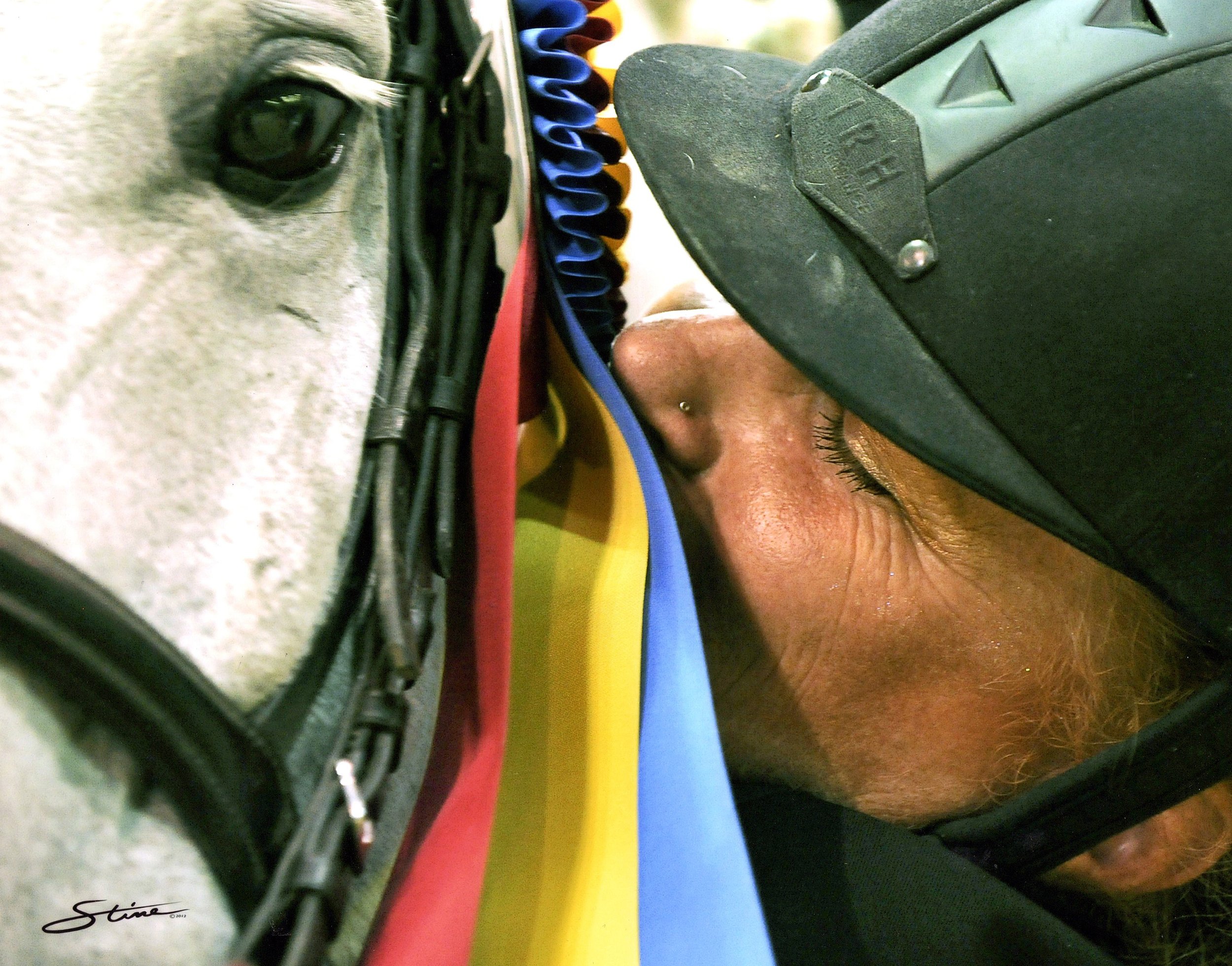Thoughts after a horse show
I went to my first horse show when I was 13 years old. I had been invited by the Blake family who helped me get started by allowing me to ride their very broke and experienced horses. I remember I had such a hard time falling asleep the night before. My mom made me a new shirt for the show and I borrowed a cowboy hat from the Blakes. It was a whole new world. Little did I know what was lurking in the shadows.
The more elevated the level of competition, the more pressure there was for perfection. I learned the “Blame Game” of “the horse spooked,” “The horse wasn’t listening,” “The horse was being lazy,” “The horse knows better,” “All the horse wanted to do was speed up,” “The horse wouldn’t work away from his friends.” On and on all the attention on the horse and how the horse failed to gain me the placings I was hoping for. I had put in the work and I wanted the kudos just like any sport right?
Wrong.
It’s taken me over 40 years to clarify and understand just how wrong I was.
I have shown a LOT over these last decades in a lot of different disciplines and breeds. I developed a solid plan for each horse and tried to be fair to each one in keeping with their nature. I was known for getting horses “broke” to just about anything (and just about any horse regardless of how complicated).
I felt pretty good about it. I wasn’t using force. I wasn’t using severe bits, positions, or gadgets. I was just, well, focused and determined. The horse would be ready. I would teach them everything they needed to know, every environment, multiple warmup, fitness, balance, and strengthening regimes, and multiple exercises to calm them should they become upset.
Obviously, it was working to some degree.
I burned out anyway. I drifted away from showing and decided to spend some years focusing on my education and my internal well-being. It took time, but the answers have slowly drifted into focus:
• I can prepare a horse for a given activity, but the horse is his own being. He is free to process, act, and react according to his nature and experiences. I can try to tell myself that he is not free in this way, but that ideology is flirting with removing a sentient being’s autonomy. I can have plans to help and support the horse, but his mind is his own.
• If the horse is his own being, I cannot control his every move, reaction, or emotion. Nor should I. Why would I want to? Why would I desire a collaboration where the other party has no say? How can my teammate truly participate if they have no self-determination?
• Since my teammate has the emotional and intellectual capacity of a 4-year-old child (give or take, not a great comparison but we’ll go with it for the sake of making a point) how does that make me feel about taking away their voice, their expression, their choices, their exuberance? How about when they’re tired, bored, in pain, anxious, afraid, or simply don’t want to participate anymore? A child, human or big, hairy, and four-legged, deserves protection, care, and our sincere attention to their state of mind and body.
• Every judge I show to has their own being, opinions, motivations, education, and experiences. He or she may see things in a similar vein as I do or they may not. Their evaluation of 5-10 minutes of my and my horse’s work together is limited at best. They have no idea where the horse is in the education process, the horse’s past, disposition, preferences, or state of mind/emotion, or our overall goals. I do. They may want to see positions, or “frames” that are unhealthy for my horse due to their breed or discipline affiliation. Regardless, it is still my responsibility to protect my big, hairy, four-legged toddler. Winning isn’t worthwhile if it damages my horse or my relationship with him.
• All of this supports my final conclusion, my bottom line: showing, for me, is about celebrating the horse, not me. It’s a display of the horse’s growing in healthy biomechanics, increasing strength, balance, and flexibility. A statement of reverence for the beauty and strength of a horse willingly working in a seemingly seamless collaboration. A horse on display for everything they are, inside and out. I then become the guide and support.
Showing is an activity for a horse like any other activity. We can test our skills and the language between us. It’s nice that the arena is watered and worked. It’s great that there are lots of other horses around. Maybe even a trail course or a cones course is set up already! Judges in the middle are fine too. The judges don’t owe me anything and I won’t treat my horse with disrespect to try to impress them so it seems we have an accord.
Horse shows used to be filled with nerves and frustration, directed mostly at the horse. Now it’s focus, clarity, humility and so much thankfulness that a horse is willing to play along in this silly game.
After all, prizes and titles are meaningless to horses.
How they are treated?
Now that’s another thing entirely.
It means everything.
Makenzie Lane Bonny at her first show under saddle


























